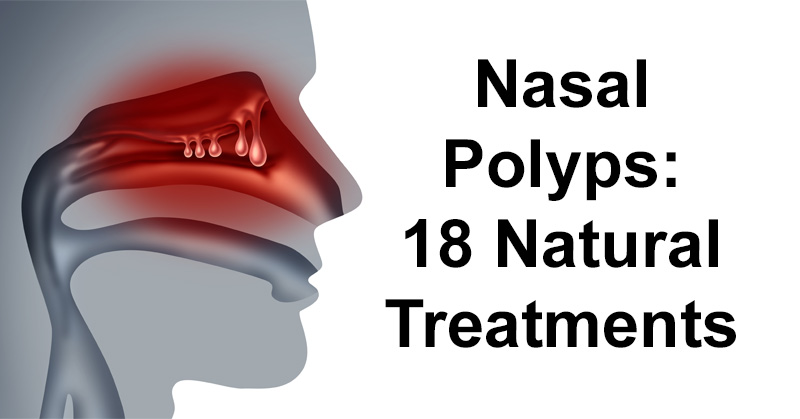Nasal polyps are fairly common, noncancerous growths that line the nasal passages. If they become too large, they can block the nasal passages and make breathing difficult. Nasal polyps symptoms can include sneezing, pressure, a stuffy or blocked nose and facial pain. Without nasal polyps treatment, they may result in complications such as sleep apnea. (1) Researchers aren’t sure exactly what causes nasal polyps, but there are several known factors that can increase your risk of developing the condition.
Nasal Polyps Risk Factors
- Allergic rhinitis
- Asthma
- Aspirin allergy
- Sinus infections
- Acute and chronic infections
- Cystic fibrosis
Nasal Polyps Symptoms
- Stuffy or blocked nose
- Sneezing
- Postnasal drip
- Runny nose
- Facial pain
- Difficulty smelling
- Loss of taste
- Itching around the eyes
- Infections
- Pain in the teeth
- Vocal changes
- Sense of pressure in the forehead and face
- Snoring
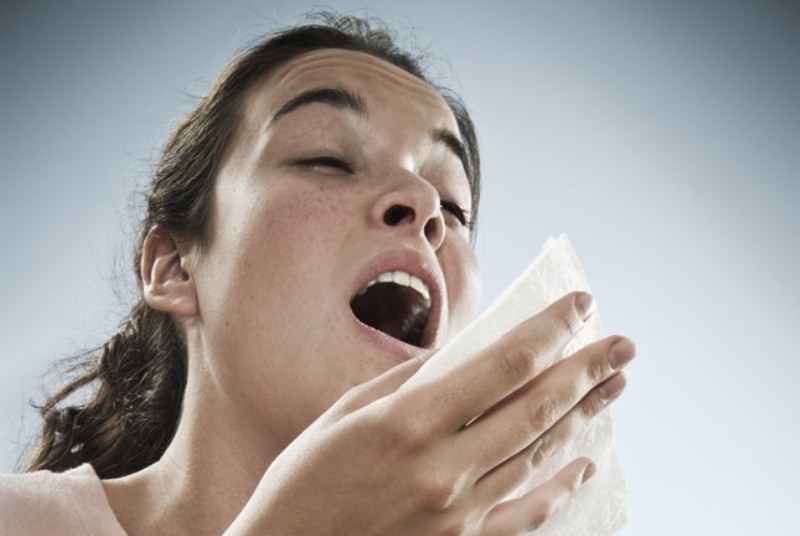
Nasal Polyps Treatment
1. Tea Tree Oil
Tea tree oil has powerful antimicrobial properties that can help reduce blockages in the nasal passages. Diffuse the oil and breathe in the aroma to help clear your airways. (2)
2. Bromelain
Bromelain is an enzyme found in the core of a pineapple that helps boost the immune system. It can be used as a nasal polyps treatment thanks to its ability to reduce swelling. Add a pineapple core to your smoothie or take bromelain as a daily supplement.
3. Goldenseal
Drinking goldenseal tea can help relieve nasal polyps symptoms. Goldenseal has antibacterial and antimicrobial properties that can help soothe inflammation. (3)
4. Magnesium
Magnesium is a natural anti-inflammatory that helps relax body tissue. If you’re wondering how to shrink nasal polyps naturally, adding magnesium-rich foods to your diet can help. Try leafy green vegetables, nuts, seeds and legumes.
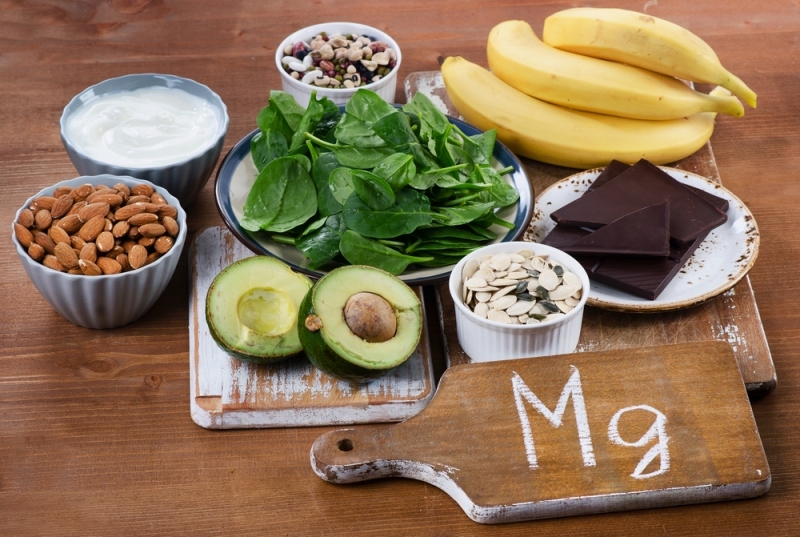
5. Zinc
Zinc is helpful in fighting colds, infections and chronic sinusitis, which makes it a natural remedy for nasal polyps. Take a zinc supplement each day or add zinc-rich foods to your diet such as pumpkin seeds, chickpeas, cashews, spinach and mushrooms. (4)
6. Turmeric
The curcumin found in turmeric has powerful anti-inflammatory properties and healing benefits. Add turmeric to your diet as a nasal polyps treatment. Sprinkle it in a smoothie, soup, salad or any other dish.
7. Probiotics
Probiotics can help boost the immune system to fight off bacteria and infections. Take a high-quality probiotic supplement or add probiotic-rich foods to your diet such as kefir, kombucha, sauerkraut and kimchi. (5)
8. Cayenne Pepper
Cayenne pepper contains Vitamin A which helps reduce inflammation in the nasal passages. It also contains Vitamin C which supports a healthy immune system. Add cayenne pepper to your meals for a spicy kick.
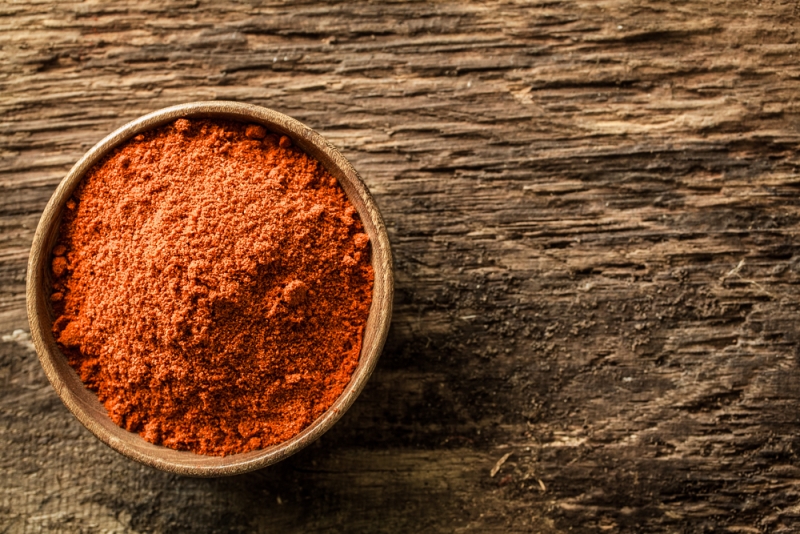
9. Apple Cider Vinegar
Apple cider vinegar is known as a natural allergy remedy to help break up mucus and relieve inflammation. Mix 2 tablespoons of apple cider vinegar into a glass of water and drink three times per day for pain relief. (6)
10. Garlic
Garlic can help relieve inflammation and rid the body of infections, thanks to its antiviral and antifungal properties. Take garlic as a supplement or add it to your food on a regular basis to reap the health benefits.
11. Onions
Onions contain antioxidants that help protect the body from inflammation. Add onions to your diet to help fight off harmful bacteria, illnesses and infections. (7)
12. Greens
Greens and vegetables in the cabbage family are high in Vitamin A, C and E, as well as selenium and beta-carotene. These nutrients are an essential part of a healthy immune system. Add spinach, broccoli, carrots, sweet potatoes, apricots, mango, melon and kale to your diet.
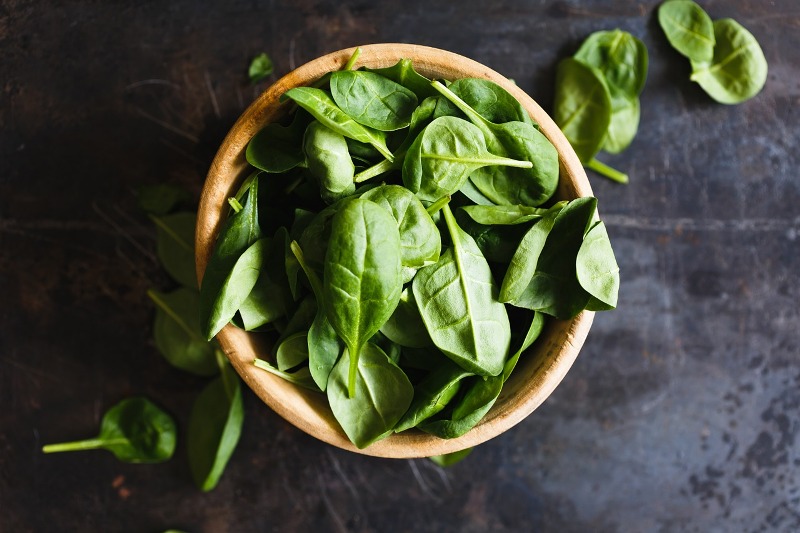
13. Omega-3 Fatty Acids
Omega-3 fatty acids play a key role in boosting the immune system and protecting the body from inflammation. To fight sinus infections and nasal polyps, add flaxseeds, chia seeds, walnuts and hemp seeds to your diet.
14. Avoid Potential Allergens
Eliminating potential food allergens from your diet can help prevent nasal polyps and other inflammatory conditions. Common allergens include dairy, wheat, eggs, yeast, soy and gluten.
15. Steam Inhalation / Humidifier
Using a humidifier at home can help add moisture to the air to thin mucus and prevent your airways from being blocked. You can also try steam inhalation to moisten your nasal passages and open your airway. (8)
16. Hydration
Drinking plenty of water throughout the day keeps your body hydrated, including your nasal passages. Staying hydrated will help moisten your nasal passages to thin mucus and open up your airway.
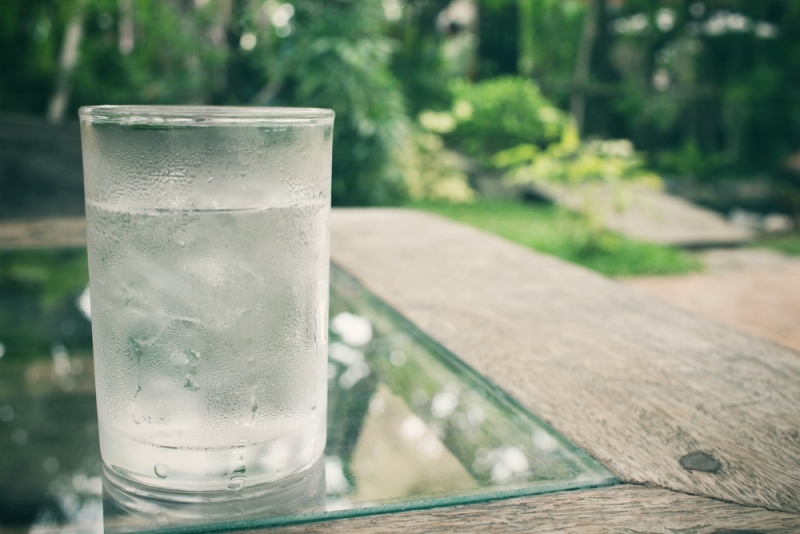
17. Avoid Alcohol
Studies suggest that alcohol can irritate the lungs and cause sinus problems, including nasal polyps. Avoid alcohol to reduce your risk of nasal polyps or to prevent the infection from worsening. (9)
18. Nasal Irrigation
Flushing your sinuses with warm, salty water can help provide relief from allergies, colds and sinus infections. Try nasal irrigation to help reduce inflammation caused by nasal polyps. (10)
https://youtu.be/gmq38sIors4


